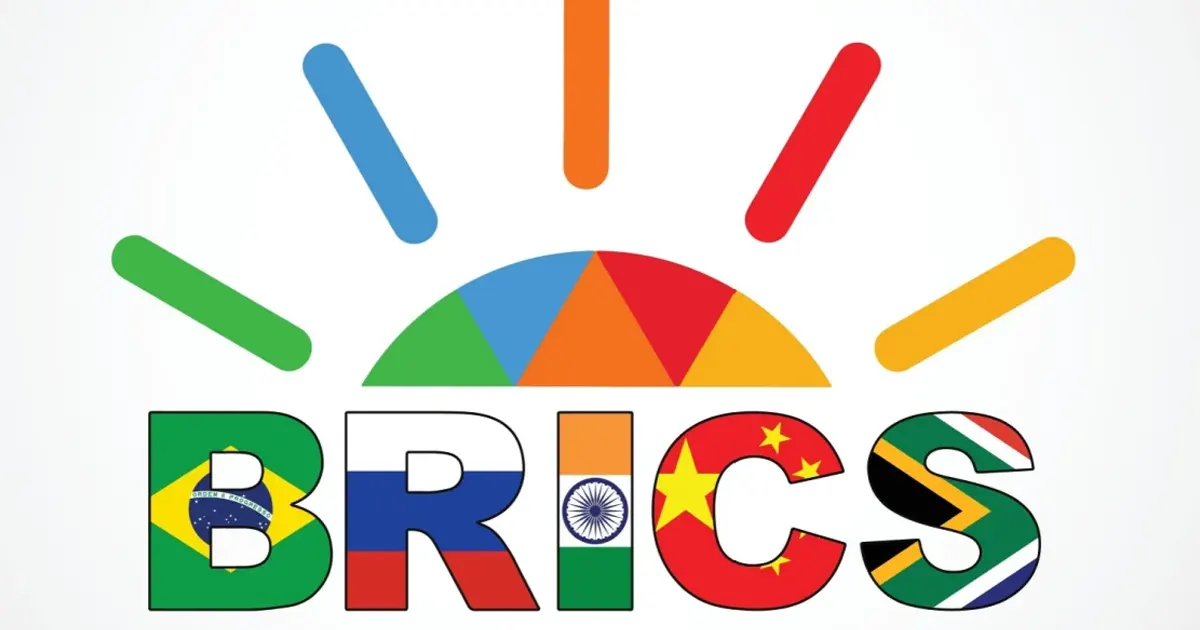
BRICS is an acronym for an association of five major emerging economies: Brazil, Russia, India, China, and South Africa. It is a significant geopolitical and economic bloc that plays an essential role in shaping global affairs.
Formation and Evolution of BRICS:
- 2006: BRICS was informally formed when Brazil, Russia, India, and China (BRIC) leaders met on the sidelines of the G8 Outreach Summit in St. Petersburg, Russia. The meeting led to the formal establishment of the group at the 1st BRIC Foreign Ministers’ Meeting in New York.
- 2009: The inaugural BRIC Summit took place in Yekaterinburg, Russia, marking the group’s first formal summit.
- 2010: South Africa joined the group, making it BRICS (Brazil, Russia, India, China, South Africa).
- 2014: The New Development Bank (NDB) was established at the 6th BRICS Summit in Fortaleza, Brazil, to fund infrastructure and development projects in emerging and developing economies.
Key Facts about BRICS:
- Population and Economic Impact: BRICS countries collectively represent about 45% of the world’s population (around 3.5 billion people) and contribute 28% of the global GDP, which exceeds USD 28.5 trillion.
- Energy and Resources: BRICS members, especially those from the Middle East, contribute significantly to the global energy market. For instance, Iran, Saudi Arabia, and the UAE together account for 44% of global crude oil production.
Geopolitical Importance of Recent BRICS Expansions:
The recent inclusion of new members has enhanced the geopolitical and economic importance of BRICS:
- Energy Cooperation:
- Saudi Arabia and Iran joining BRICS significantly bolster the group’s access to global energy reserves. Saudi Arabia‘s oil exports are increasingly directed toward China and India, while Iran, despite sanctions, has expanded its oil exports to China. This shift underscores the importance of energy security and cooperation within BRICS.
- Diversification of Energy Markets:
- Russia‘s exploration of new markets within BRICS helps diversify its energy exports, reducing reliance on traditional markets in Europe. This expansion strengthens BRICS’ energy security and opens new avenues for trade.
- Strategic Expansion into Key Maritime Regions:
- The inclusion of Egypt and Ethiopia strengthens BRICS’ geopolitical position, especially in terms of influence over critical maritime trade routes in the Horn of Africa and the Red Sea. These regions are vital for global trade and energy transit, further enhancing the strategic significance of the group.
Summits and Leadership:
- The BRICS Leaders’ Summit is held annually, with each member nation taking turns hosting the summit.
- 2023: The 15th BRICS Summit was hosted by South Africa.
- 2024: Russia will host the 16th BRICS Summit.




